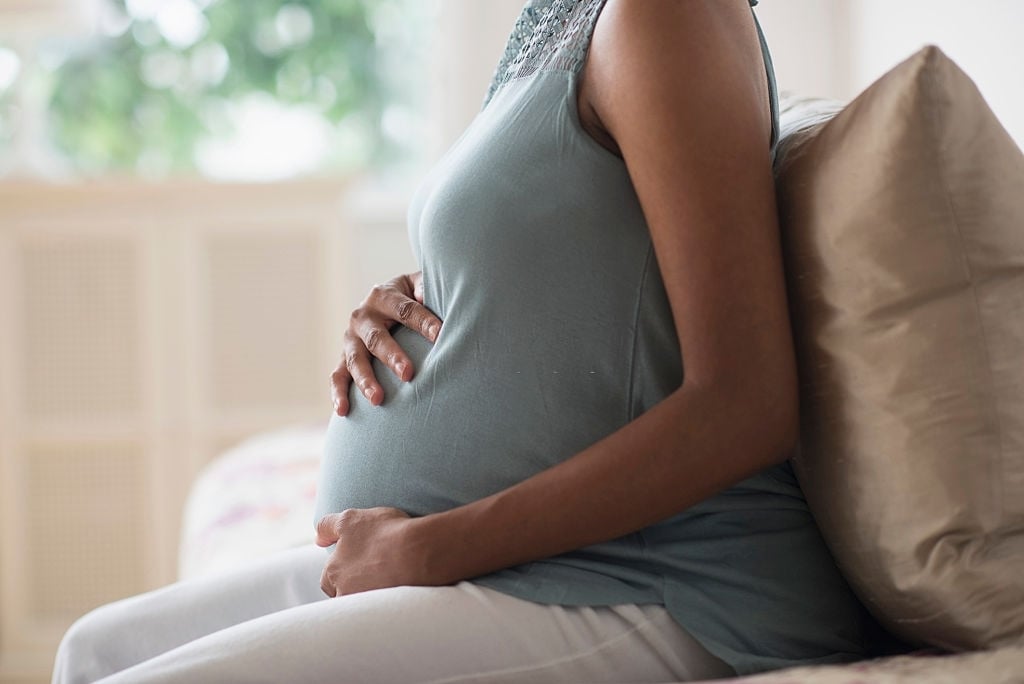Prime
Why pregnant mothers must eat a balanced diet

Dieting while pregnant can deprive your baby of nutrients needed to grow and develop. PHOTO/COURTESY
What you need to know:
- Malnutrition, especially among pregnant women and adolescents heightens the risk of maternal and neonatal mortality and morbidity, low birth weight babies and other complications.
A new report by United Nations Children's Fund (Unicef) states that malnutrition in mothers has soared by 25 percent, putting women and newborn babies at risk.
Globally, 51 million children under two years of age suffer stunting, meaning they are too short for their age due to malnutrition. Proper nutrition before, during pregnancy, and while breastfeeding is, therefore, essential.
“To prevent undernutrition in children, we must also address malnutrition in adolescent girls and women,” Unicef executive director, Catherine Russell, says.
GET TO KNOW: Is it safe to eat fish while pregnant?
Malnutrition, especially among pregnant women and adolescents heightens the risk of maternal and neonatal mortality and morbidity, low birth weight babies, impeded growth, impaired cognitive development, which all often translates to an intergenerational cycle of malnutrition according to Nelly Birungi, a nutrition specialist, Unicef Uganda.
There are growing concerns over nutrition across the country, with only 15 percent of six-month to two-year-old children in Uganda consuming the minimum acceptable diet, as measured by diversity and frequency.
If malnutrition is not addressed across all the different stages of the life cycle, the consequences will lead to increased levels of maternal and neonatal mortality and morbidity, low birth weight babies, impeded growth, and impaired cognitive development of children.
The basic feeding
Dr Joseph Nsengiyumva, a gynaecologist at Bethany Hospital in Kampala, recommends that pregnant women eat a balanced diet all through the time of their pregnancy to keep themselves and the baby healthy as well as reduce the symptoms of pregnancy such as nausea and constipation.
Folic acid is one of the most recommended nutrients during pregnancy because it helps reduce the risk of neural tube defects (birth defects of the brain and the spinal cord) among newborn babies such as hydrocephalus and spina-bifida that can cause intellectual disability among children.
“It is essential during the first month of conception when the most spinal and brain defects occur. Unfortunately, some women may not notice that they have conceived. This is the reason why one should start taking folic acid before they plan to conceive and continue throughout the pregnancy,” Dr Nsengiyumva says.
Different women may require different amounts of folic acid. Those taking anti-epileptic drugs for instance may require higher doses.
Vegetables
Besides the supplements, expectant women can also get folic acid from some leafy vegetables, beans, nuts, citrus fruits and berries.
“Vegetables are an essential part of everyone’s diet but more important for an expectant mother because they give her a boost of vitamin A, potassium and folic acid while adding bulk to her stool, preventing constipation. Such healthy vegetables can include carrots, pumpkins, beetroots, spinach and kale,” Birungi says.
Fruits such as bananas, mangoes, apples, oranges, watermelon are a good source of potassium that helps in maintaining the balance of fluids and electrolytes in the body during pregnancy
Proteins are converted into amino acids upon digestion. The amino acids are important for foetal development and growth. Muscle development of the unborn baby depends upon your intake of protein rich foods that are diffused through the placenta.
Feeding and weight gain
Some women even when they are pregnant fear to gain weight and will continue dieting. However, Dr Nsengiyumva warns that such mothers are likely to give birth to babies that are too small for their age, malnourished and stunted.
The ideal is forexpectant mothers to eat a balanced diet with plenty of fruits and vegetables and have sizable portions of carbohydrates and proteins. There are no food restrictions during pregnancy unless a mother reacts to a particular food. However, one should avoid junk and oily foods as well as alcohol and smoking.
While weight gain is important during pregnancy, gaining more than the recommended weight is associated with a big baby, causing delivery complications such as cesarean section and childhood obesity.
Ideal weight gain
Depending on one's initial size before conceiving, Dr Nsengiyumva, a gynaecologist at Bethany Hospital in Kampala, recommends that pregnant women gain between 10 to 15 kilogrammes for chubby and smaller women respectively.




